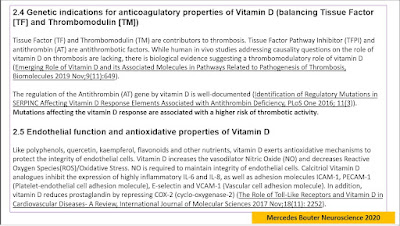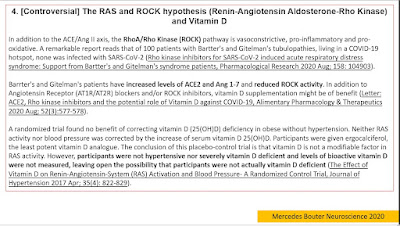Vitamin D might be another 'trendy' molecule among food watchers and those who are (reasonably so) looking for an easy go-to immunity booster to ward off pathogens, but Vit D is no miracle molecule.
Vit D might aid to counterbalance the immunity response to pathogens, but not even a "perfect" serum Vit D compound will be sufficient to fight infections and disease. The immuno-modulatory properties of Vitamin D should not be overestimated.
Given its abundance (receptor-wise) in the cardiovasculatory system and immunity system, Vitamin D molecules are expected to be pivotal players on the stage of immunity. However, causality questions on the cardioprotective and immunomodulatory role of Vitamin D compounds remain to be addressed.
What is not prone to doubt, is that Vitamin D comprises a group of steroid compounds and that their receptor (VDR) is native to the innate immunity system. That is: VitD downregulates inflammatory activity and regulates maturation of monocyte-derived dendrites.Markedly, inflammatory TNF-alpha concentrations were found to negatively correlate to healthy VitD serum levels. This might indicate that moderate Vit D serum levels counterbalance inflammatory Tumor Necrosis Factor-alpha levels.
The possible antithrombotic potential of Vitamin D: low serum 25-hydroxyvitamin D levels are correlated to thrombosis and embolism. Low Vit D levels at presentation of ischemia is associated with an elevated risk of Venous Thromboembolism (VTE) and neurological defects.
Vitamin D is presumed to exert anti-platelet aggregation properties, which could be of benefit in anti-thrombosis regimens.
Underestimated and often even overlooked is the role of Vitamin K in cooperating with Vitamin D.
Examples of dietary sources of Vitamin K:














